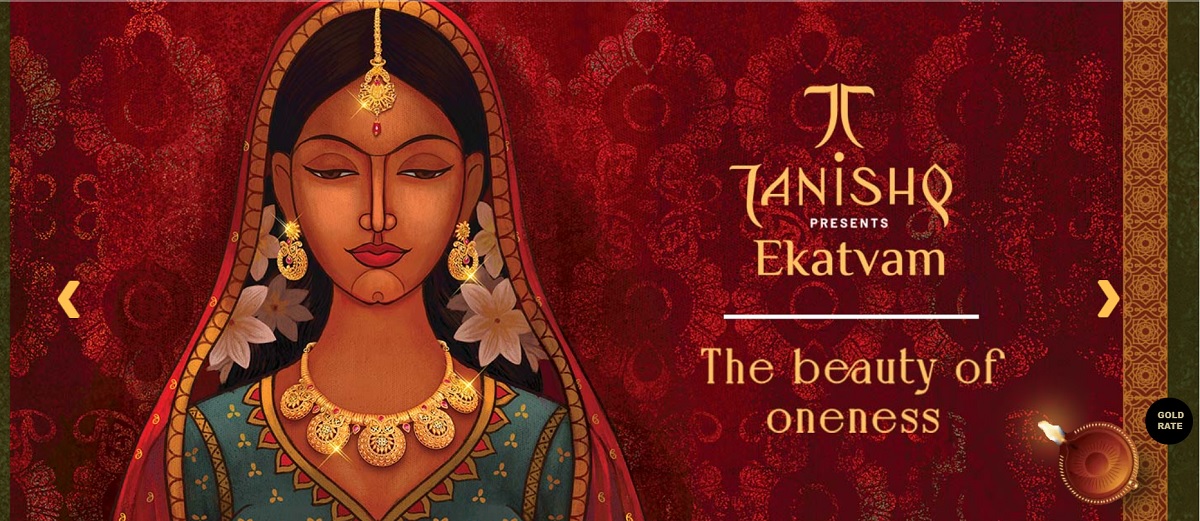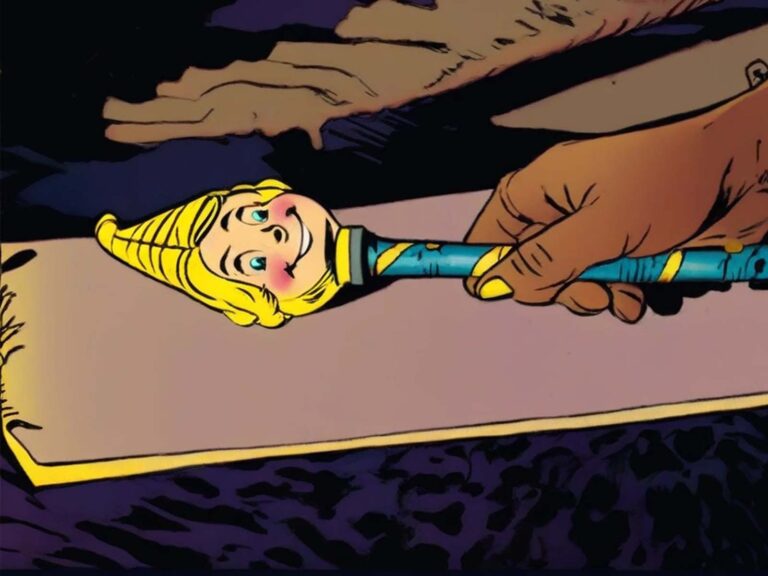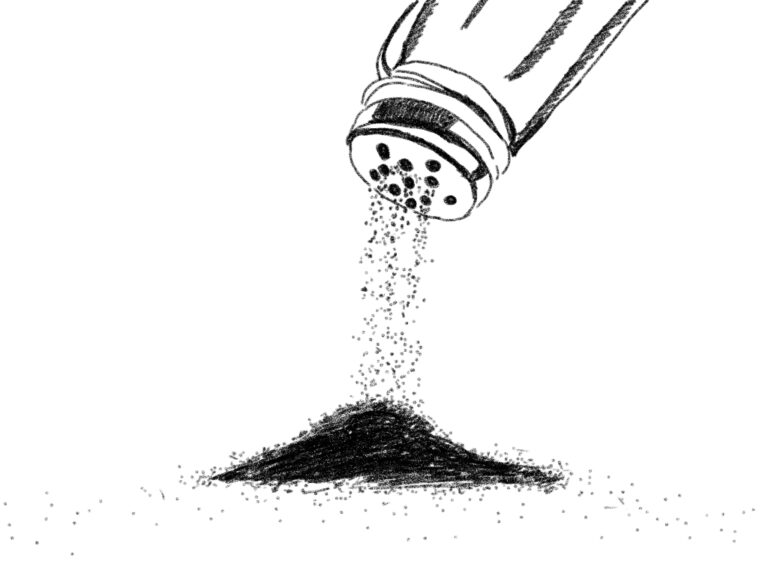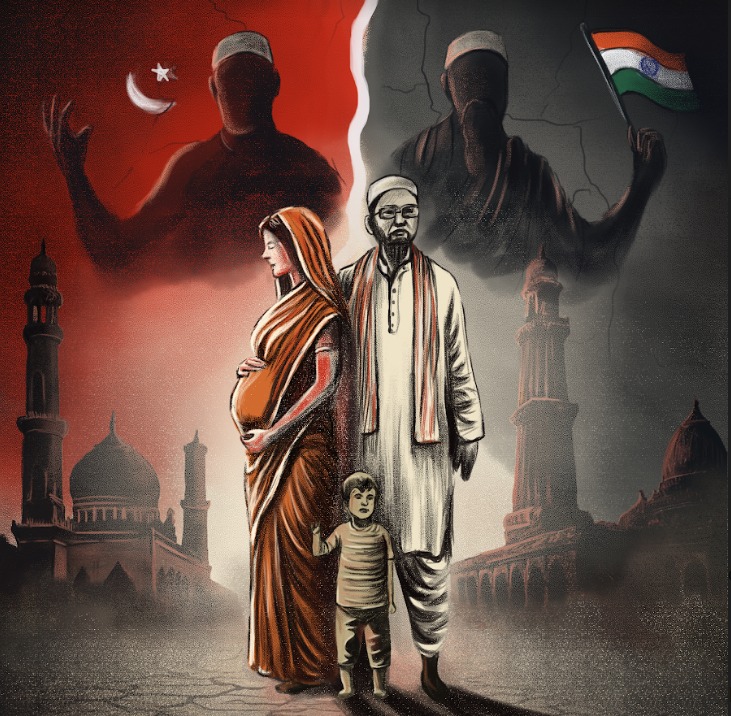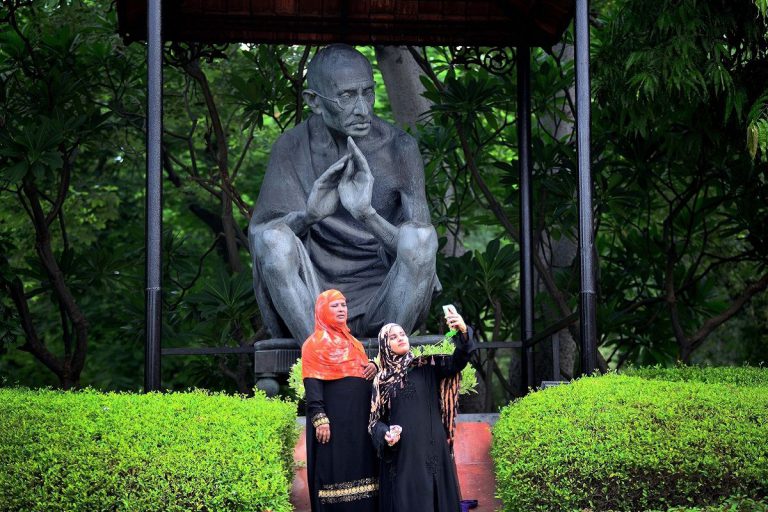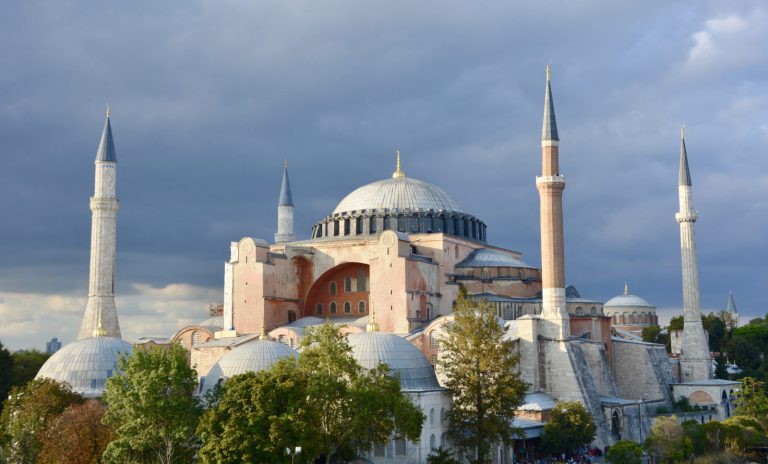Ekatvam through the Hindutva lens-The Tanishq Ad

Vedika Gupta is an aspiring Air Warrior who writes in her spare time. She is as passionate about cinema, gender, and travel as she is about her hazelnut cappuccino.
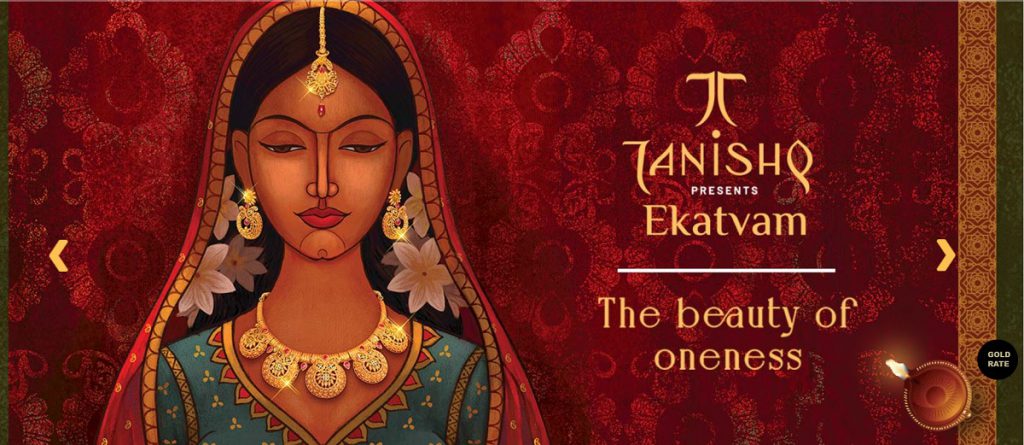
[responsivevoice_button voice=”US English Female” buttontext=”Read out this Theel for me”]
The ‘Hindu-Muslim’ matter has been one of the greatest fault lines of Indian lives and politics. Several articles explore the bigotry in the Tanishq “Ekatvam” controversy, and rightly so –but why are the Hindutva nationalists offended?
While curbing artistic freedom and freedom of expression by linking it to “Love Jihad” is extremist –their agitation isn’t baseless.
Bollywood thrives on the element of ‘fantasizing.’ Viewers enter the worlds of the characters and coincide it with their own. The Ekatvam advertisement had a positive message, but it too portrayed a fantasy. A blemish-free world where there is beauty and oneness in religious confluence. This is the very reason for the alienation caused amongst Hindu fundamentalists since this fantasy is far from the gore reality they witness. The story in the ad was unreal, and trolls called it out to be “fictional secularism.”
Though not justified, I believe the outrage was a sort of catharsis. An expression of discontent due to both recent and past occurrences, along with several other disparities amongst the two religions.
Even a dilettante knows that in the field of marketing and advertising, timing is everything. Striking when the iron is hot is what drives markets. The target audience needs to be receptive for the sales to skyrocket. With the backdrop of the tragedy of 20-year-old Rahul Rajput, putting this Tanishq ad in context –paints a grim picture. Rajput was brutally beaten to death by his ‘Muslim’ girlfriend’s brother over their love affair. While mentioning caste, class, or religion as a prefix to an individual seems unnecessary, it becomes pivotal in such cases to highlight the cause for such barbarism.
Similarly, in Karnataka, 24-year-old K Lakshmipathy was lured on the pretext of discussing marriage and strangled by his Muslim partner’s father.
Anjali Tiwari renamed herself as Ayesha upon conversion to Islam after marrying Asif Raza. She attempted self-immolation in front of Vidhan Sabha of the Hazratganj Kotwali area of Lucknow and succumbed to burn injuries on Wednesday. This was done due to the alleged neglect and harassment by her husband and in-laws.
These gory details are still fresh in people’s minds, and a rosy interpretation of inter-faith couples and families has been viewed as a twisted joke. While one might argue that it is art and fiction that can illustrate an alternate universe where such evils don’t exist, no ad exists in a vacuum, and seeing it in light with context adds a different hue. Thus, Ekatvam’s timing of release was doomed.
There are other aspects that make Hindus wearier of wedlock in Muslim families, rendering the ad a miscalculated move. Triple Talaq, Halala marriage, polygamy, and property rights are all skewed against Hindus marrying Muslims. If a Hindu woman enters into marriage with a Muslim man without converting to Islam beforehand, she cannot inherit her husband’s property, the Supreme Court had ruled in 2019. This is how the ad falls flat in convincing the right-wing of the confluence it promises.
Then comes in the general antagonism from the Hindu community towards media, movies, and advertising agencies. Hindu-phobic narrations have become far too common in an attempt at foregrounding secularism and under the guise of exposing social evils. While we mustn’t have a problem with Muslim characters being honest, kind, and honorable –this doesn’t warrant a mockery of Hindus or Hinduism. In films like “Raees,” “Once Upon a Time in Mumbai,” and “Haseena Parker,” dons are shown to be benevolent, while in films like PK, a theatre actor playing Mahadev is meek and laughable. What lingers in their minds isn’t the message about criticizing superstitions, but if Prophet Muhammed or Allah or Jesus can be ridiculed in a similar manner? Why is Muslim representation on reel always treated with compassion and Hindus seen brutish –that is the blanket sentiment such audiences walk out with. This is where the divide is created.
Now, in isolation –these issues might seem petty or ones one wouldn’t mull much over. Repetition is what becomes the snake in the grass. Trifling matters are viewed with a magnifying glass in hand, and people become touchier.
There are sociological and legal reasons that make people sentimental and often prejudiced. Hence, while this might be a case of holding onto grudges, the social media abhorrence towards Tanishq doesn’t stand groundless.
When people are always required to pussyfoot around the sensitivities of only one community and unvaryingly shrug off the sentiments of another, there is bound to be a pushback sometime. Tanishq only experienced this the hard way. One may say that it is these artistic and creative renditions that provide the “glass half full” perspective or prove to be the light at the end of the tunnel; context explains why hatred is being spewed instead of the oneness Ekatvam espoused. While the whole vicious Hindu extremist trolling can be seen as making a mountain out of a molehill, it’s also a case of how there’s no smoke without fire.
Now, this doesn’t mean people should go out to Tanishq stores asking store owners to forcefully write an apology or belch out with such hostility online.
Maybe it’s just that we’re still far away from an India where all love is love and where everything doesn’t become an us vs. them issue.
Featured Image Credits: Tanishq Website


